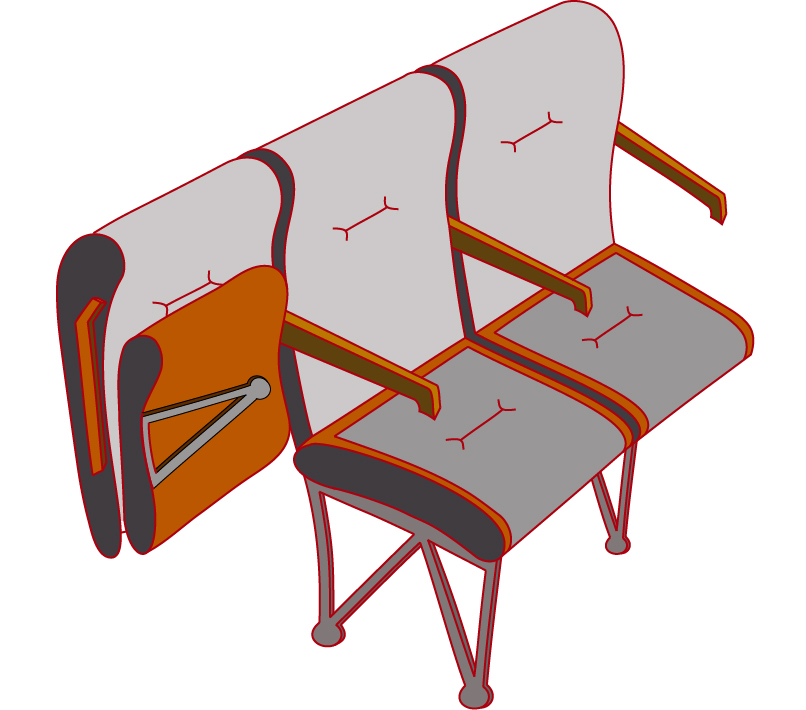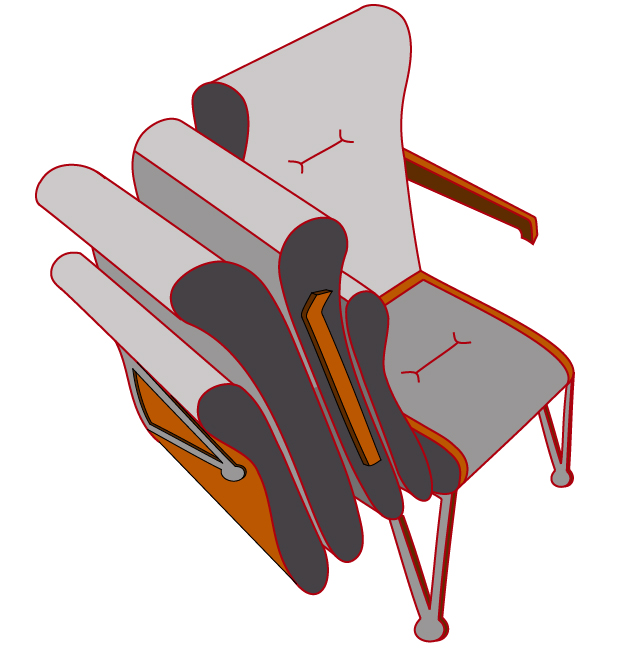Team CyFly, the lone United States team remaining in the global Airbus Fly Your Ideas Challenge, is in the midst of Round 2 as they refine their concept and construct mockups. The team is is one of 50 teams remaining in the competition to develop ideas for how to change the future of aviation. If they are one of the five teams selected after Round 2, they will fly to Toulouse, France to present their idea at the Airbus World Headquarters. Although the competition is open to undergraduate as well as graduate students, Team CyFly is comprised of four junior aerospace engineering majors. Recently, they spoke to the Aircraft Owners and Pilots Association about their idea and progress.
By David Tulis – Click here to read the entire article on aopa.org
The global competition is open to college and graduate students who compete for aviation innovation in five categories: passenger experience, flight operations, design engineering, manufacturing, or business models.

Iowa State aerospace engineering sophomore Jack Stanton explained that teams of three to five students brainstorm an idea in the first round of competition to innovate and possibly “reinvent the future of flight.” In the second round, which began in January and ends in late March, teams look at how to implement their ideas, refine concepts, and build mockups.
“Five of those 50 teams are picked to go to round three,” said Stanton, “and they actually fly those teams to Airbus headquarters in Toulouse, France, for about a week, and pair you with engineers to make real parts. That’s really cool.”
With a nod to the school’s Cyclones nickname and the engineers’ aviation pursuits, the group calls itself Team CyFly. Tho Ton, an Iowa State junior, said the group of four, including Lechen Wang and Koki Tomoeda, bonded and quickly got to work.
They picked the passenger experience challenge and brainstormed how to streamline an airliner’s boarding process. Figuring that time was money, the team came up with a novel solution to fold seats out of the way to free up the center aisle and speed up placing bags in overhead compartments.
“It took us awhile to get here because we initially wanted to fold the chairs to make them all lay flat” in the cabin, said Stanton. Trial and error, along with cardboard mockups of their design, helped the four determine that the best tactic was to fold and swing only the outermost seat on each side of the aisle. The back of the aisle seat folds downward, and the entire apparatus then rotates to hug the seat next to it. The extra room “basically doubles the aisle” to help other passengers quickly move past and save boarding time.
 Team CyFly has since reached out to the FAA to learn about what kind of Gs the seats must withstand and communicated with American Airlines and other industry connections as they finalize their design specs with hopes of advancing to round three.
Team CyFly has since reached out to the FAA to learn about what kind of Gs the seats must withstand and communicated with American Airlines and other industry connections as they finalize their design specs with hopes of advancing to round three.
Stanton said he “knew pretty early on” that he wanted to become an aerospace engineer because he really liked math and science in middle and high school. He also accompanied his father and grandfather, who are both certificated pilots, on flights in general aviation aircraft.
“I flew a lot in my grandpa’s Cessna, especially as a kid,” he said. “Early on I got sick all the time so I didn’t like it too much until I got over that.” He said when they allowed him to take the yoke “it definitely piqued my interest.” If Iowa State emerges victorious Stanton said he’d consider using some of his winnings to get his pilot certificate.
The biennial competition drew 5,446 students worldwide, said Airbus Americas Communication Manager Kara Evanko, who was encouraged by the Iowa State group’s drive.
“It’s been really fun so far and it’s been a great experience,” said Stanton. “My professors would be pretty amazed at what we’re doing.”